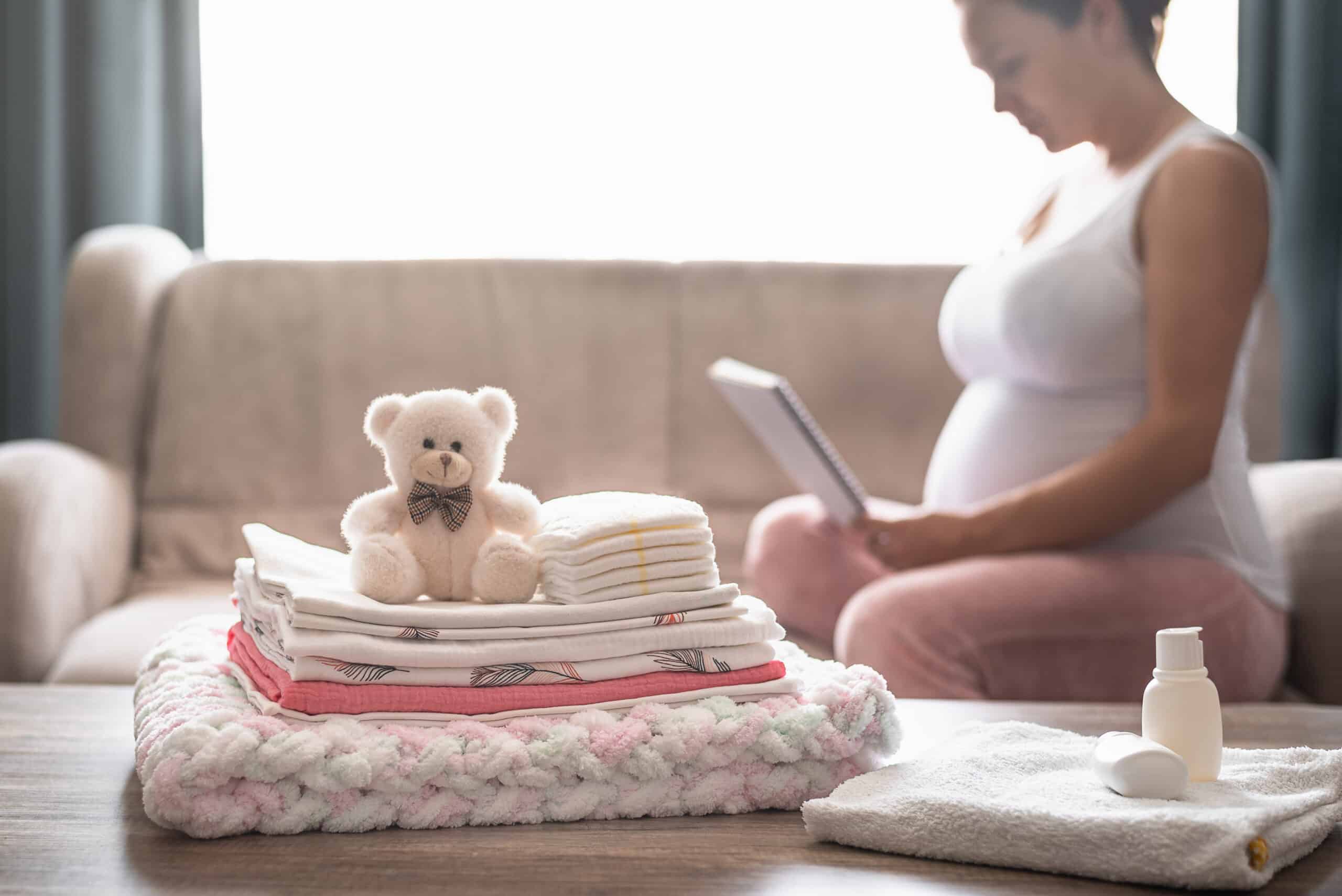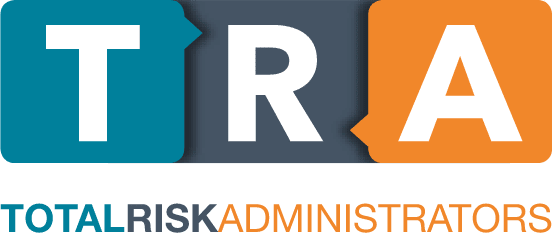Knowing what to pack in your hospital bag can be difficult for an expecting mom, especially if this is your first hospital delivery.
Before packing at all, you need to prepare emotionally and financially for this life-changing event. Get your medical aid and gap cover insurance in place before pregnancy to avoid lengthy waiting periods. Or if you are already pregnant, your baby will be covered by your gap cover policy once they are born.
If you’re not sure when to pack your bag, we suggest packing your hospital bag at least five weeks before your due date. This is in case you go into labour earlier than expected. This may feel too soon, but approximately 50% of births occur before the 38-week mark. You don’t want to go into labour early and arrive unprepared and overwhelmed at the hospital.
To help you, we’ve created a checklist for both Mom and Baby in preparation for your new arrival!



What to Pack in the Hospital Bag?
Labours are unpredictable, so it is difficult to know what you might want to pack that will help you relax and reduce pain during childbirth.
Our Go-to Checklist For Mom (Before Delivery):
Your favourite Pillow:
Whilst the hospital will provide pillows and bedding, if you want to have a supportive pillow from home it might help you feel more comfortable and relaxed.
Energy sweets:
The average labour lasts 12 to 24 hours for a first birth. So having some sweets to snack on as you go through the early stages of labour can help maintain your energy levels. However, all snacks should be approved by your practitioner.
Massage oil:
A back massage can be excellent pain relief for some moms during labour. Pack lotion or massage oil in your bag for muscle tension and cramps.
Birthing ball:
This item is not essential. However, studies have shown that a birthing ball is an effective tool for reducing pelvic pressure and lower back pain during early labour.
Our Go-to Checklist For Mom (After Delivery):
Lightweight, front-opening cotton pyjamas (one set per day):
You’ll spend a lot of time in bed when recovering in the hospital, so pack a few comfortable pyjamas to sleep in. If you plan to breastfeed, pack a few nursing bras and easy-to-lift or front-opening pyjama shirts to make the process easier.
An outfit to wear for going home:
Moms often plan their baby’s going home outfit but forget about themselves! Don’t forget to pack your clothes to wear home and make sure they’re comfortable and non-restrictive of your movement.
Heavy-flow maternity pads:
The hospital will provide some maternity pads. However, if your flow is heavier than expected, you may want to pack some heavy-duty ones. Also, be sure to pack comfortable underwear that is large enough to wear over maternity pads.
Lip balm and moisturiser:
The decline in oestrogen and progesterone levels after labour and delivery can cause many women dry skin and chapped lips.
Toiletries:
You’ll want to pack a toothbrush, toothpaste, hairbrush, hair ties, deodorant, and other hygiene items that form part of your daily routine in your hospital bag.
Our Hospital Bag Checklist for Baby
Three sets of washed baby vests and babygrow:
New parents often underestimate how often newborn babies will need to be changed. However, most hospitals recommend packing at least three sets of vests and baby grows for the baby to wear in the hospital. Don’t forget to add baby socks and hats to the hospital bag checklist.
Going home outfit:
A long-sleeve footed pyjama set will be perfect for your baby to wear home. You’ll need a warm beanie and a pair of socks if it’s cold outside.
Receiving blanket:
The hospital will likely provide blankets. However, you can wrap your baby in your blanket for the car ride home.
Car seat:
Whilst this definitely won’t fit in the hospital bag itself, it is recommended to install your car seat around the same time you pack your hospital bag.
What to Pack in Your Hospital Bag for Your Partner:
Snacks and water:
Adding snacks and water to the hospital bag checklist for your birth partner will ensure that they can focus on you and your baby during labour and delivery and do not have to run out to grab food or drinks when needed.
Change of clothes:
The hospital will likely let your partner sleep on a couch or chair next to you. Be sure to include a comfortable change of clothes on the hospital bag checklist along with their toiletries and other essentials.
Phone, camera and chargers:
You’ll want this day to be documented. Make sure that your partner has everything they need to snap some pictures and keep your friends and family updated.
Your hospital bag checklist and birth plan:
If you have a birth plan, we recommend sharing it with your partner before going to the hospital. Discuss your thoughts on pain medication, episiotomies and your expectations of the doctor.
You can also give them a hospital bag checklist for last-minute items that they must throw in your bag before heading to the hospital. Your partner may need to be your advocate during labour. So, giving them the birth plan and hospital bag checklist can help if any last-minute questions arise.
Have You Packed Your Hospital Bags?
- Pre-delivery bag for Mom
- Post-delivery bag for Mom
- Bag for Baby
- Bag for Birthing Partner
Things that Can Typically Stay at Home
Towels:Towels are always provided and changed regularly. You don’t want to have to keep a used towel in your hospital bag until you get home.
Jewellery: Jewellery is often not allowed in the delivery room if you require a caesarean. Therefore, we recommend that you leave all jewellery at home, so it doesn’t get lost or misplaced.
Nappies and wipes: The hospital will most likely provide nappies and wipes, so there is no need to add nappies to the hospital bag checklist.
Double Check With The Hospital: If you’re unsure what to pack, ask the hospital for the list of provided items ahead of time. This will keep your hospital bag checklist down to a minimum and guide you on how to pack your hospital bag.
Make sure you’re covered
Everyone’s hospital bag will look slightly different, but it’s a good idea to be overprepared rather than underprepared. Think carefully about what you’ll need and decide which items will best suit your birth plan and new family.
Giving birth can be an unpredictable experience, and therefore, hospital fees are often expensive and come with unexpected costs.
This is why it is best to be securely covered with a gap cover policy that can cover the shortfalls between the rates charged by the hospital and what your medical aid pays.
TRA Offers The Best for You and Your Baby
TRA gap cover offers a myriad of gap cover benefits to support pregnant families, including the Maternity Private Ward Benefit. TRA will cover the shortfall between the general and private ward rates for hospitalisation related to childbirth.
This allows TRA members to enjoy the benefits of having a private ward during this intimate time without paying the extra cost so that you won’t also have to pack your life’s savings in your hospital bag.
Please note that TRA gap cover has a 10-month waiting period for pregnancy, so plan ahead in order to be covered for the birth. Or, if you are already pregnant, you can still join and benefit from the costs relating to the baby etc. after birth.
Regardless of what you pack in your bag, it is best to feel prepared in as many ways as possible to help you enjoy this life-changing moment without worrying about extra financial costs or forgotten items.













